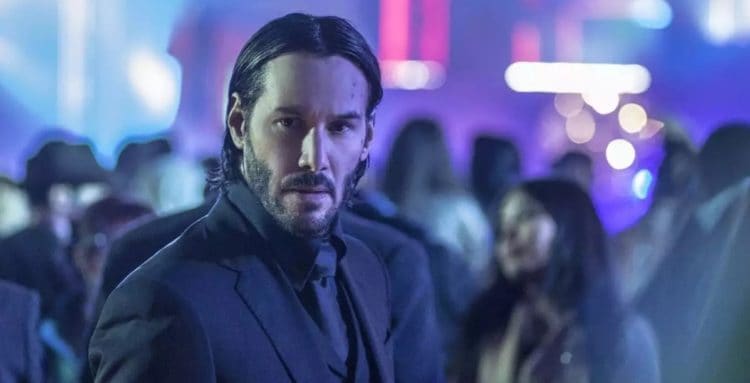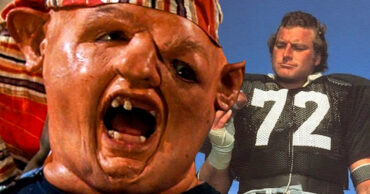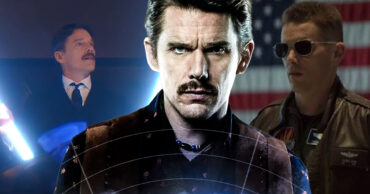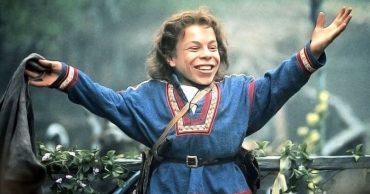
There’s some sense to the idea that the John Wick movies are indeed centered around the Five Stages of Grief as Ryan Beltram of We Got This Covered has discovered on Reddit. Normally I’d be right along with Ryan to say that shutting your mind off and enjoying the carnage, gunplay, and action sequences to the fullest extent would be the best way to go. But as one could only guess would happen, someone took the time to analyze the John Wick movies and apparently came up with the idea that they’re following the Five Stages of Grief that are laid out like so: Denial, Anger, Bargaining, Depression, and Acceptance. Just so you can follow easier, it goes like this:
Denial:
As the Reddit user tries to assert, John is living in denial since he keeps his wife’s things around him, as though to keep her close. He hasn’t so much moved on as he’s moved into a life, into a moment where she still exists in a way. The argument here however is that in the first movie he goes quickly from denial to anger once his dog is killed and his car is stolen, but again, denial plays a large part since he can’t let go of the idea that someone killed his dog since the pooch was a gift from his wife. After all, taking away someone’s illusions does tend to lead to anger with a lot of folks as it incites a rage in some people that’s best left alone most times.
Anger:
In John Wick Chapter 2 he’s definitely still struggling, but he’s also given some sense of hope before it’s snatched away by the man he ends up killing. It takes the entire movie for the Anger portion to culminate as John is pushed, and pushed, and pushed some more to finally get him to do the one thing that no assassin in their right mind would do within the Continental. As many people throughout the world know too well though, anger clouds judgment and makes it possible to break down and maneuver past all filters that might caution one against certain actions. It’s also the eventual beginning of what could be the end for Wick since killing a target within the Continental, especially a member of the High Table, is the same as killing a made man in a mobster movie, it’s just not forgivable.
Bargaining:
Even John Wick knows that he can’t outrun or hope to survive an entire city filled with would be assassins, and this is where the attempt to bargain comes in as he has to cash in favors and do his best to simply survive. It’s kind of hard to watch John pretty much begging for a chance to live when the first two movies established that he was on a course that would end in his own destruction or that of anyone that crossed him. But the body count remained insanely high for the third movie as well since his bargaining paid off right up until the end when Winston shot him off the edge of the Continental.
Depression:
Given what we already know from having watched the third movie, John is definitely slowing down, getting sloppy, and his inability to let things go has been evident since the first movie. It’s likely he still acted in the right even though it was ill-advised to do so in the Continental. But this isn’t like the assassin that we’ve heard so often took out a number of victims with a pencil, someone that could make Baba Yaga run in fear when it was mentioned he was coming. If anything, his actions are driven more by the desperation to be worthy of his late wife’s devotion and love, to put aside the life of the assassin, and going the most roundabout way possible is proving to be a trial that he might actually welcome, no matter how self-destructive it is. Maybe it could be his own trial by fire that he’s taking on willingly? It’s a thought, and it’s enough to make a person think that he’s going to take his vengeance with the Bowery King at his side and possibly make an example of Winston, or come to realize that it was a ploy for Winston to save his life, as he didn’t shoot him in the head after all.
Acceptance:
This could go a couple of ways if we do get a fifth movie, and at this point either one is likely to appease the fans since John has run a course that’s been severing ties and alienating a lot of people in his life. The only one he really cared about that deeply is gone, and everyone else is part of a life he’d rather forget. So whether he lives and goes on his way after the story is over, or dies and finally finds the peace he wanted, a lot of people are likely going to think that it’s still a good ending.
It does make a lot of sense really when you look at it.
 Follow Us
Follow Us





